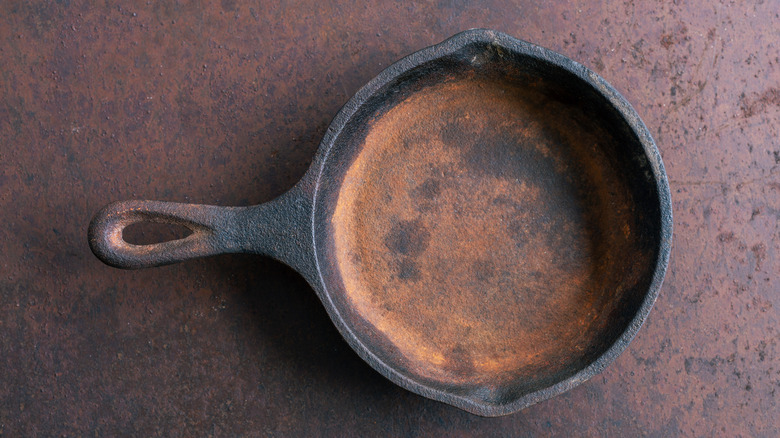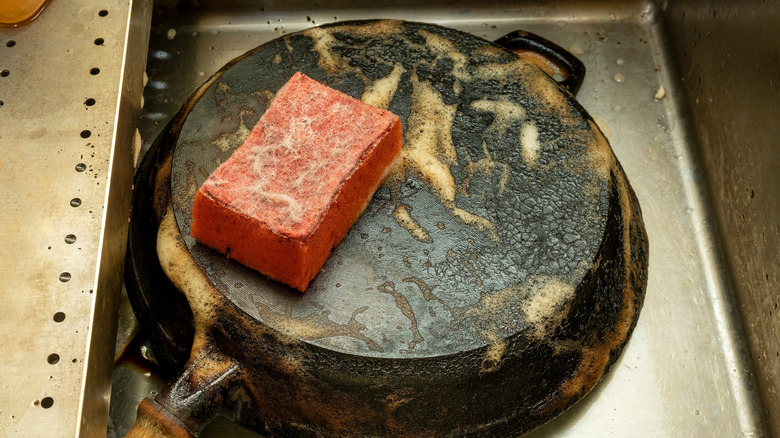Is Rust On Cast Iron Safe?
Say you've inherited your grandma's cast iron skillet or happen upon a vintage piece at a garage sale. It's impossible not to notice that the pan's patina is concealed beneath a flaky layer of rust. Washing it may help a bit, but rust is persistent. You wonder if the cast iron is safe to cook with this weekend for breakfast or if you should just toss it in the trash. The U.S. Department of Agriculture (USDA) states that rust isn't food safe, so it wouldn't be wise to ingest. But the truth is, rust occurs in the life of any cast iron pan or utensil. If you do happen to scrape a flake or two onto your fork, there's no cause for alarm. Don't make a habit of it, but consuming rust in such small quantities is generally harmless unless you suffer from hemochromatosis, a rare condition that causes the body to retain too much iron.
Due to its chemical composition, iron is prone to rusting when exposed to either to oxygen or water, which is unavoidable in everyday life. If the rust isn't removed in a timely fashion, it will eventually damage the iron itself. Scrubbing rust off a cast iron skillet with soap has been a big no-no for years since soap was once made with lye and vinegar, which could easily harm the pan's seasoned patina. Removing rust with vinegar still works as long as you don't soak the skillet. Dish soaps, however, are much gentler, and will do the trick just fine.
How to keep rust from forming on cast iron
Cleaning rust off cast iron is not without some real elbow grease, but it's essential for extending the lifetime of the skillet. Most dish soaps contain a degreaser that lifts off oil and food bits, and generally isn't harsh enough to ruin the patina. To clean rust off a cast iron pan using hot water and dish soap, scrub the rust with a non-abrasive sponge or a scrub brush before rinsing it off. If needed, repeat the process again until it's clean. Since water is iron's mortal enemy, dry the pan thoroughly, inside and out. To be extra sure that the pan is dry, warm it up it over medium heat on the stovetop or at 200-300 degrees Fahrenheit in the oven.
One of the main reasons that rust forms on a cast iron pan is a lack of seasoning. So, a good preventative measure would be to treat your newly rust-free cast iron as if it just came out of the box and re-season it. There's actually science behind why cast iron should be seasoned, and when done properly and maintained frequently, your skillet will stay rust free. With your cast iron perfectly safe, try out some craveable cornbread recipes or make it a pizza night with crispy no-knead skillet pizza.

